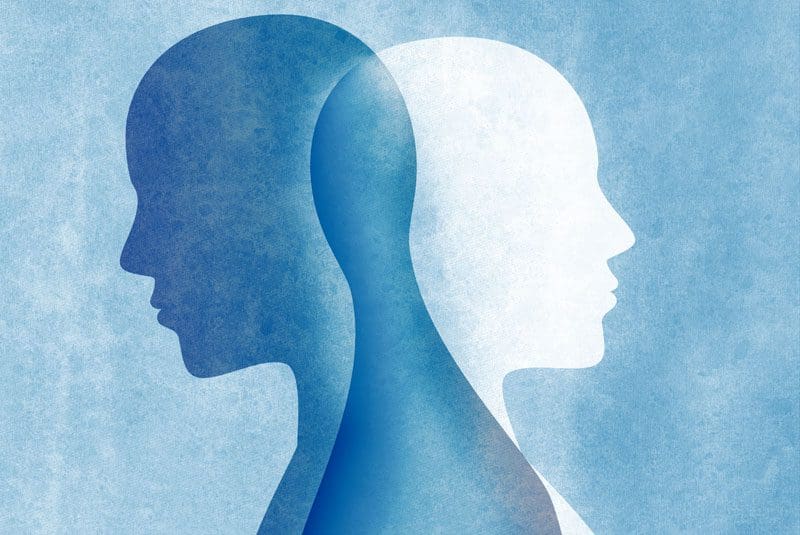Dual diagnosis treatment helps people with a mental health disorder and co-occurring substance abuse issue. Treatment blends the mental health care and substance abuse treatment into a comprehensive program.
Until the 21st century, people with both mental health and substance abuse issues were treated separately for each condition. Often times, people were forced to get sober before they were given mental health treatment. Because of this, many people often did not get the help they needed. Today we know that substance abuse often stems from mental health issues. Therefore, successful treatment needs to address both issues simultaneously.


How Common is Dual Diagnosis Treatment?
One in four adults with a mental illness also has a substance abuse disorder. Unfortunately, many people with this diagnosis do not receive treatment for both conditions. In fact, a study found that in 2002, only 12 percent of the 4 million adults with a dual diagnosis received treatment for both.
What are Symptoms of Dual Diagnosis?
Symptoms of dual diagnosis are widespread, and can vary from person to person. This can make it difficult to diagnose. As a result, many mental health clinicians are starting to special use screening tools. These tools help determine whether people are at risk for a drug or alcohol addiction disorder.
First, let’s look at common warning signs of mental health conditions:
- Extreme mood changes
- Prolonged feelings of depression
- Confused thinking
- Problems with concentration
- Withdrawing from friends and family
- Thoughts of suicide
Next, let’s look at common symptoms of drug or alcohol abuse:
- Participating in risky behaviors
- Withdrawing from friends and family
- Sudden behavioral changes
- Developing a high tolerance for the substance
- Experiencing withdrawal symptoms
- Feelings of needing to be on the substance to function normally
- Using substances under dangerous conditions
If a person has one or more symptoms in each category, a dual diagnosis treatment program will likely be beneficial.
Contact us today to take your first step towards recovery.
How Do We Treat Dual Diagnosis?
The most effective dual diagnosis treatment addresses both mental health and addiction issues at the same time. The separate issues often feed off of one another, making it important to address both for success.
There are commonalities among dual diagnoses treatment plans, although each facility is unique. Below are the most common methods used as part of a successful treatment program.
Detoxification
Stopping cold turkey can be dangerous when a person is physically reliant upon drugs or alcohol. Because of this, detoxification, when needed, is the first step in dual diagnosis treatment. Generally, a person is monitored by trained medical staff 24/7 for up to seven days. The staff may administer medication and counseling as the individual goes through detoxification.
Inpatient Rehabilitation
A person who has been given a dual diagnosis will likely benefit from an inpatient program. Here they will have access to medical and mental health care 24/7. Inpatient facilities provide medical and mental support. Additionally, they offer therapy, education and other health services.
Supportive Housing
Group homes or sober houses are residential treatment centers that help newly sober people avoid relapse. Supportive housing allows people to live their normal daily tasks while residing in a supportive environment. It is important to note that many of these facilities are not overseen by licensed professionals. For that reason, it is important to do your research before selecting supportive housing.
Psychotherapy
Psychotherapy, or talk therapy, is typically a large part of dual diagnosis treatment. These sessions provide people with the tools they need to cope with daily life. Additionally, they help a person change patterns that may increase the risk of relapse.
Medications
In some cases, medications will be used to treat a mental illness. Additionally, certain medications may also help people coming off of substances by mitigating withdrawal side effects.
Self-Help and Support Groups
Remember that dual diagnosis treatment is an ongoing process. Finding a strong support group is important for a lasting recovery. Support groups can help reduce feelings of isolation. They also provide a space to share frustrations as well as celebrate successes.
Here are some common support groups for people with a dual diagnosis:
- Alcoholics Anonymous and Narcotics Anonymous – Anonymous 12-step group recovery programs for people in recovery from alcohol or drug addiction.
- Double Trouble in Recovery – A 12-step program that focuses on managing both substance abuse and mental health.
- Smart Recovery – A sobriety support group for a people with a variety of addictions that is not faith-based.
Find a Dual Diagnosis Treatment Center
The Blackberry Center in St. Cloud Florida, just outside of Orlando, offers an intensive dual diagnosis treatment program. Contact us for more information on how we have helped many people build a solid foundation for a better life.
